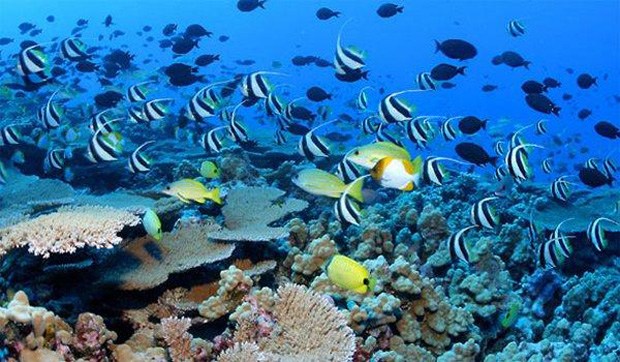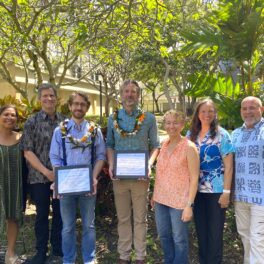Genomic database aids scientists studying impact of global change across life on Earth
 Fish and coral reef in the Papahānaumokuākea Marine National Monument. (credit: James Watt, courtesy of PMNM/ NOAA)
Fish and coral reef in the Papahānaumokuākea Marine National Monument. (credit: James Watt, courtesy of PMNM/ NOAA)
A new publicly available database will catalog metadata associated with biologic samples, making it easier for researchers to share and reuse genetic data for environmental and ecological analyses. The resource, called the Genomic Observatories Metadatabase (GeOMe), was developed by researchers at the University of Hawaiʻi at Mānoa’s Hawaiʻi Institute of Marine Biology (HIMB), California State University Monterey Bay and seven other museums and research institutions.
The database links publicly available genetic data to records of where and when samples were collected, providing contextual information that until now has been missing from widely shared databases. Such information is critical for comparing biodiversity in different locations worldwide and tracking it across time. Despite calls for more data sharing within the research community, researchers have until now lacked the tools to make this information readily available.
With GeOMe, researchers will be able to find and access genetic data collected at specific times and places anywhere in the world, enabling them to ask big questions about the structure and sustainability of life on the planet. For example, they might investigate how the inhabitants of a specific altitude throughout the world have shifted as the planet’s climate has changed.
“Recording and understanding changes to global biodiversity is a collaborative effort that no one can accomplish alone,” said Rob Toonen, a professor at HIMB who helped with the development of GeOMe.
Read more on UH News.




